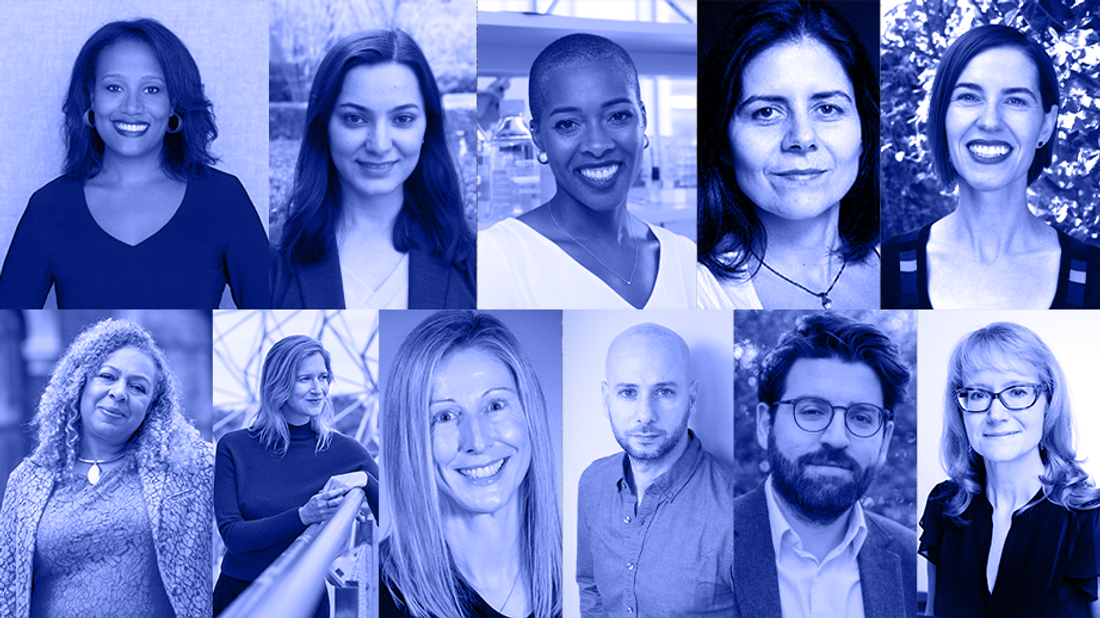New Cohort of Faculty Visitors Heading to Paris
Location
ParisPosted
June 30, 2025
The 2025-2026 cohort of faculty visitors at Reid Hall in Paris includes historians, scientists, journalists, cultural researchers and physicians, among others.
How will these researchers and professors take advantage of a unique opportunity to work at the home of Columbia Global Center Paris and the Institute for Ideas and Imagination?
The new cohort of faculty visitors at Reid Hall in Paris will conduct research at local institutions and contribute to ongoing programs and discussions.
During their one- to three-week stays in Paris, the visitors will research and collaborate on topics ranging from colonial and environmental history to art and LGBTQ+ studies to racial justice and pediatric health care. They will contribute to public lectures, podcasts and video series.
Learn more about how these faculty members' work in Paris below.
2025-2026 Reid Hall Faculty Visitors
- Leah Aronowsky (historian of science, Columbia Climate School) will work on advancing her book project, The Pragmatic Pessimists: Fossil Fuel Dependence and the Politics of Climate Adaptation, which reexamines climate politics by centering oil and energy in the story since the 1970s.
- Julia Bryan-Wilson (researcher, feminist and queer theory, artistic labor, and craft histories) will research her book AIDS is Contemporary, which argues that the 1980s AIDS crisis—not the 1989 fall of the Berlin Wall—marks the true beginning of contemporary art by highlighting the urgency and inclusion of activist and non-traditional art forms like posters, zines, and performance.
- Alexis Clark (journalist and author focused on race, culture, and politics during World War II and the Civil Rights era) will expand her research on the experiences of Black American World War II soldiers, focusing especially on mixed-race children known as “Brown Babies” fathered by Black G.I.s and white European women in France. Building on her reporting about Germany’s Brown Babies and Black veterans’ struggles with segregation and denied benefits, she will explore French archives and connect with WWII scholars to deepen understanding of these overlooked histories.
- Ralph Ghoche (historian of 19th-century architecture and urbanism) will research and write a chapter for his book Christians in the Casbah: Reassessing the Catholic Church’s Role in Algeria, focusing on the 1853 discovery and forensic study of Geronimo, a 16th-century Muslim convert martyred in French Algeria. His project explores how this case bolstered Catholic missionary efforts under colonial rule and reveals little-known conversion practices through rarely accessed archival documents.
- Mirna Giordano (pediatric hospitalist) will study multidisciplinary pediatric surgical co-management protocols by observing preoperative, intraoperative, and postoperative care at leading children’s hospitals like Hôpital Necker-Enfants Malades and Pitié-Salpêtrière, as well as the American Hospital in Paris. She aims to learn how shared decision-making and collaborative care are practiced in France to inform international consensus and curricular improvements in pediatric surgical care.
- Kellie Jones (researcher of Black American, African Diaspora, and Latinx artists) will focus on researching and writing the Parisian chapter of her book Augusta Savage: Inhabiting Black Modernism, exploring how Savage’s sculptural work engaged Black internationalism, pan-Africanism, and queer visual culture within the vibrant diasporic and artistic networks of interwar Paris. She will utilize archives at the American Library and Parisian institutions to deepen understanding of Savage’s connections to Negritude, the 1931 Colonial Exposition, and Black modernist communities, while contextualizing her work alongside the broader cultural movements captured in exhibitions like Paris Noir.
- Bianca Jones Marlin (neuroscientist) will advance her collaborative project TRANSMIND, investigating how imagined sensory experiences—“fictive memories” generated via optogenetics—might be biologically encoded and inherited across generations. Working closely with French collaborators at ESPCI Paris and utilizing resources at Reid Hall, she will deepen the understanding of how brain plasticity links imagination, trauma, and inheritance, with implications for mental health and generational healing.
- Emmanuelle Saada (researcher, French empire in the 19th and 20th century) will promote her forthcoming book, Écrire l’histoire de la Colonisation, by engaging with French media, delivering talks at prominent universities, and sharing her research with the Reid Hall community, all while providing a comprehensive analysis of global colonial histories and their impact on historical scholarship.
- A. Tunç Şen (researcher, Ottoman social and cultural intellectual practices) will conduct in-depth archival research at the Bibliothèque nationale de France on 16th- and 17th-century Islamic manuscripts acquired during Mediterranean maritime conflicts, focusing on their material features to uncover the social history of Ottoman military readers. He will also advance research on key figures in early French Orientalism linked to imperial and diplomatic networks.
- Aziza Shanazarova (researcher, religious history of Islamic Central Asia and the Persianate world from the 16th to 20th centuries) will conduct archival research at the Bibliothèque nationale de France on previously unstudied waqf deeds established by women in Islamic Central Asia from the 16th to 20th centuries, aiming to illuminate women’s roles in charity, religious, and educational institutions. Her work seeks to recover women’s legal and financial agency in shaping public life and offer a counter-narrative to restrictive contemporary gender ideologies.
- Paige West (researcher, Indigenous ecological knowledge, environmental conservation, and socio-political change in Oceania) will conduct archival and museum research on Melanesian textiles and motifs at institutions like the Musée du Quai Branly and the Bibliothèque nationale de France, situating Indigenous Pacific fashion within historical and colonial contexts. She will also engage with Paris’s fashion industry networks to explore sustainable, decolonial design collaborations and build international partnerships that amplify Pacific designers. Her work aims to trace the transformation of traditional cultural expressions into contemporary fashion as a form of biocultural resilience, sovereignty, and environmental stewardship.